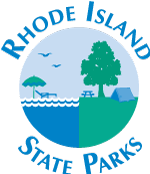RIDOH and DEM Recommend Lifting the Advisory at Worden and Carr Ponds, Avoiding Contact with Boone Lake, Smith Reservoir, and Sayles Reservoir
Published on Tuesday, October 01, 2024
The Rhode Island Department of Health (RIDOH) and the Rhode Island Department of Environmental Management (DEM) recommend lifting the advisory for recreational activities at Worden Pond in South Kingstown and Carr Pond in North Kingstown. The advisory was related to high levels of blue-green algae, also known as cyanobacteria.
Recent consecutive surveys and sample analysis confirmed that blue-green algae have been present in Worden and Carr Pond but at acceptably low levels and that cyanotoxins are not present in detectable concentrations. These findings meet the advisory guidelines and support lifting the advisory.
RIDOH and DEM are advising people to avoid contact with Boone Lake in Exeter and Smith and Sayles Reservoir in Glocester due to blue-green algae (or cyanobacteria) blooms. Blue-green algae can produce toxins that can harm humans and animals. Toxins and/or high cell counts have been detected by the RIDOH State Health Laboratory from water samples collected by the DEM.
Use caution in all areas of Boone Lake and Smith and Sayles Reservoir. Algal blooms can move locations in ponds and lakes. All recreation, including swimming, fishing, boating, and kayaking, should be avoided. People should not ingest water or eat fish from the ponds. Pets can also be affected by exposure to the algal toxins and thus owners should not allow pets to drink or swim in the water. The advisory will remain in effect until further notice.
Skin contact with water containing blue-green algae commonly causes irritation of the skin, nose, eyes, and/or throat. Common health effects associated with ingesting water containing algal toxins include stomachache, diarrhea, vomiting, and nausea. Rarer health effects include dizziness, headache, fever, liver damage, and nervous system damage. Young children and pets are at a particular risk for health effects associated with algal toxins. People who have had contact with these ponds and experience those symptoms should contact their healthcare provider.
If you come into contact with the water, rinse your skin with clean water as soon as possible and, when you get home, take a shower and wash your clothes. Similarly, if your pet comes into contact with the water, immediately wash your pet with clean water. Do not let the animal lick algae off its fur. Call a veterinarian if your animal shows any symptoms of blue-green algae poisoning, including loss of energy, loss of appetite, vomiting, diarrhea, or any unexplained sickness that occurs within a day or so after being in contact with water. People are cautioned that toxins may persist in the water after the blue-green algae bloom is no longer visible.
It is possible that blue-green algae blooms may be affecting other waterbodies. People are advised to avoid contact with waterbodies that exhibit bright green coloration in the water or at the water surface and/or dense floating algal mats that form on the water's surface. The water may look like green paint, thick pea soup, or green cottage cheese.
To report suspected blue-green algae blooms, contact DEM's Office of Water Resources at 222-4700 or DEM.OWRCyano@dem.ri.gov and if possible, send a photograph of the reported algae bloom. For more information and current advisories, consult RIDEM’s website: www.dem.ri.gov/bluegreen
